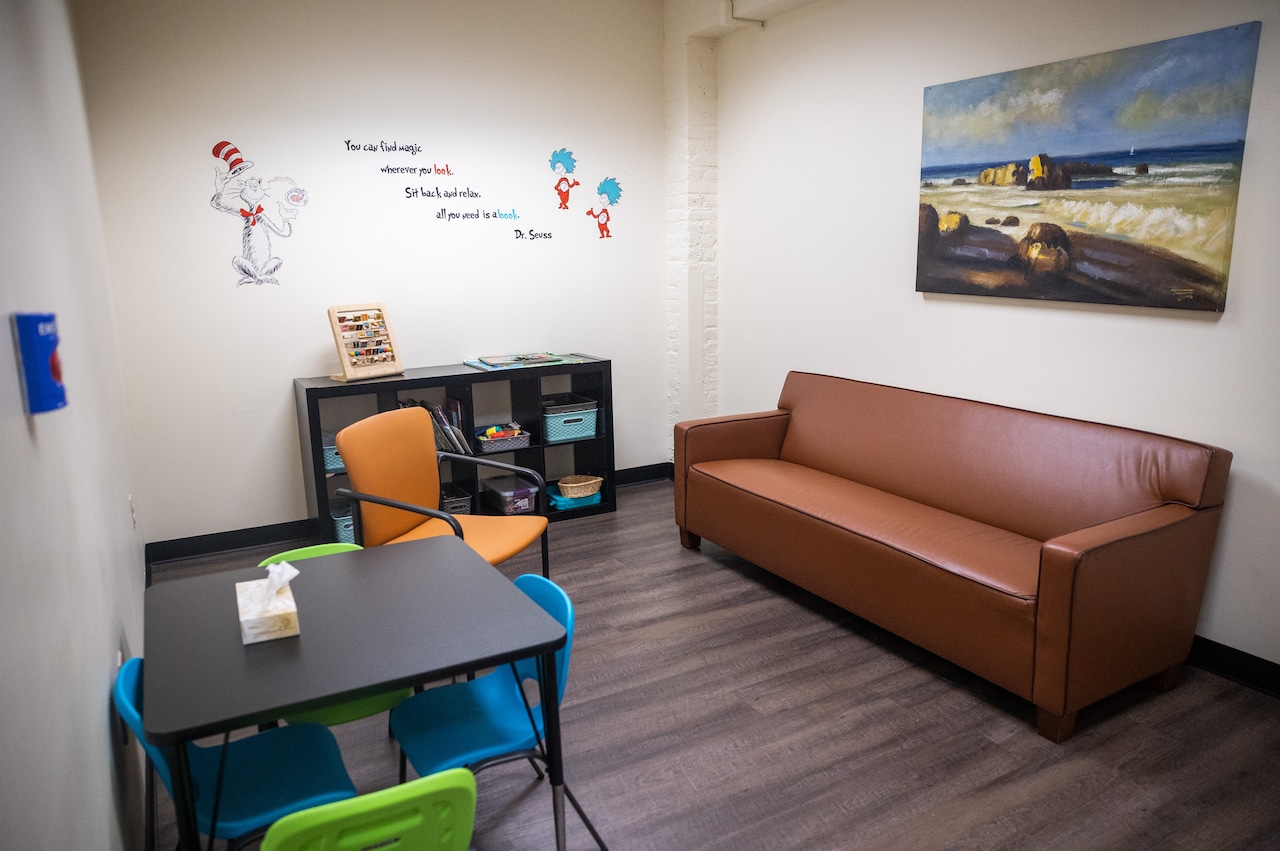SPRINGFIELD — Behavioral Health Network is taking on a Herculean task — slashing wait-times for mental health patients while expanding its operations to address a mental health care “crisis.”
“Mental health is deemed a public health crisis by the (U.S.) surgeon general,” said BHN senior vice president Kathy Mague. “Having access to trained and available staff who can support people’s needs is important,” she told The Republican.
BHN is in the midst of a hiring surge, adding 75 new employees to its current staff of 2,500 workers.
The business is also rapidly growing its footprint across the commonwealth, adding two new patient care centers — one in Springfield, the other in Boston — while taking control of six substance use disorder treatment centers in the eastern part of the state, according to Mague.
BHN currently operates 135 programs in 31 facilities in Massachusetts. Mague stated the company treated more than 38,000 adults and children last year, addressing “mental illness, substance use disorders, and intellectual and developmental disabilities,” according to the organization.
“We anticipate adding 5,000 new patients with the new programs and expansion of current programs,” said Mague.
BHN hopes to consistently offer same or next day care to patients who cannot afford to wait weeks or even months, as they have in the past.
Laura Toro-Nazario is a practice manager, responsible for Behavioral Health’s expansion in Hampden County. She said the business is increasing its days and hours of operation, working as late as 8 p.m. during the week and offering time slots to patients on weekends.
She is also rewriting policies and procedures to make the staff more efficient, “dividing and conquering” roles and responsibilities with the aspiration of getting wait times down to near zero.
“We are done with waiting lists,” said Toro-Nazario. “We want to provide crisis services, medication management and stabilization today.”
“Training starts with people who see patients when they open the door. It’s not just the clinicians. We are also training the administrative staff to be empathic and compassionate.”
The practice manager says the staff speaks many languages including English, Russian, Spanish, Arabic and American Sign Language. The provider also uses on-demand language interpretation services to break down barriers, according to Toro-Nazario.
The Massachusetts Medical Society states more than 20% of adults in the state report having a mental illness; 5% of adults say they have seriously considered suicide.
“Young people from historically marginalized groups, including Black American children, Hispanic adolescents, and LGBTQ+ youth appear to be at particularly heightened risk for both suicide and suicide attempts,” stated the society.
Substance use disorder strikes around 10% of the Massachusetts population, according to the Center for Health Information and Analysis, and while experts say SUDs are “treatable and preventable,” the number of afflicted people continues to skyrocket.
“There are a lot of challenges, and I don’t believe public policy makers have their fingers on the pulse of everything that needs to take place,” said Tony Boswell, a BHN senior vice president who is directing the provider’s substance use program expansion.
“People are becoming addicted every day. Rest assured, the need is there,” he continued.
While community behavioral health centers like BHN are likely to achieve their goal of same or second-day emergency stabilization services, a leading association of providers in Massachusetts indicates people will be waiting in long lines for follow-up and ongoing treatment.
“What happens on the third day when people need treatment. That is unlikely to happen. A lot of people are going to be in trouble,” said Lydia Conley, president and CEO of the Association for Behavioral Healthcare.
“If you have Medicaid with commercial insurance, you are likely going to struggle to get immediate treatment,” she added.
While Behavioral Health Network does not rely on federal grants, many of its clients and industry peers do depend on government assistance, according to Mague.
Founded in 1938, BHN has seen accelerated growth by creating partnerships or taking over for some providers. Mague said the business model allows her organization to create efficiencies, streamline operations and become stronger as a business.
Mague said the approach is helping providers endure what she calls strong headwinds.
“If we don’t continue to be strategic in the current fiscal climate, there are service providers who will not survive. Non-profit, behavioral health organizations are at significant risk. We need to survive and continue to do the work we’re here to do,” she said.
Patients may also have to change how they expect to receive mental healthcare.
“What community providers might be able to offer is group or peer therapy while you’re waiting for traditional therapy,” said Conley. “Community health centers were designed to meet your needs, but not the way you think, if you watch a lot of television and expect to be (alone) on a couch with a therapist.”
Mental health care providers have struggled for decades to attract and hold onto the staff needed to care for patients. Even if BHN is able to hire 75 new employees, with a company-wide vacancy rate of 17%, the business needs more than 400 new employees to consider itself fully staffed.
Government regulators are limiting what providers can charge for their services, keeping rates so low, it is difficult to pay employees what there are demanding.
“The commonwealth has done a wonderful job increasing rates over the last five years, so that has helped,” said Mague. “But pay is still not great, so turnover is almost a bigger problem than hiring people to do the hard work of caring for patients that have complicated problems.”
If you purchase a product or register for an account through a link on our site, we may receive compensation. By using this site, you consent to our User Agreement and agree that your clicks, interactions, and personal information may be collected, recorded, and/or stored by us and social media and other third-party partners in accordance with our Privacy Policy.

